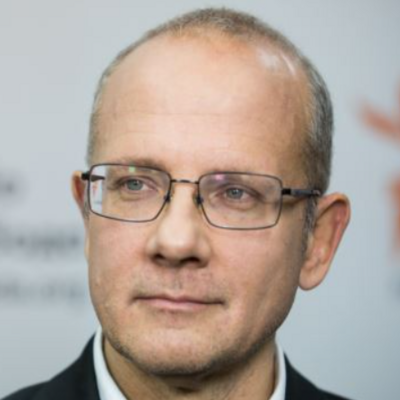Russia and the West: The Unpopular Prospect of World War III
Why have relations between the West and Russia become increasingly frosty?
January 14, 2009
A plain extrapolation of recent political developments in Russia leads one to regard outright war with NATO as a still improbable, yet possible scenario. It is not unlikely that Russian public discourse will, during the coming years, continue to move in the same direction in, and with the same speed with, which it has been evolving since 2000.
What is in store for the world is not only a new "cold," but also the possibility of a "hot" and, perhaps even, nuclear war.
This assessment sounds not only apocalyptic, but also alarmingly "unmodern." Aren't the real challenges of the 21st century global warming, financial regulation, the North-South divide, international migration, etc.? Isn't that enough to worry about, and should we really distract ourselves from solving these real problems by falling victim to phobias of yesteryear?
Russian public opinion and elite discourse have — until August 2008, largely unnoticed in the West — made a fundamental shift in recent years. The 1990s began with Russia's enthusiastic embrace of the Western value system and partnership, and they ended with Russian skepticism and bitterness towards the West.
This fundamental shift in Russian public opinion and elite discourse was less the result of NATO expansion or the bombing of Yugoslavia. Rather, it was a consequence of Yeltsin's failure in the early 1990s to remove many of the Soviet Union's elites from their positions of power and influence.
This gave the ancien régime's representatives an opportunity to impregnate post-Soviet political discourse with a reformulated, yet again fundamentally dualistic, world-view. Under this framework, Russia and the United States remain archenemies fighting not only for control of the former Russian empire — but also deciding the future fate of humanity.
Originally, manifestations of this were visible only in the margins. With the beginning of Vladimir Putin's rise in 1999, however, they started to slowly but steadily move into the political center.
Today, the idea that the Western (or, at least, Anglo-Saxon) political leaders are deeply Russophobic is commonplace in Russia. That events like the Orange Revolution in Ukraine or Georgia’s attack on South Ossetia were fundamentally inspired, if not directly organized by the CIA, is considered a truism in today's Russia.
That the CIA or another Western secret service is behind 9/11 or the Beslan tragedy is a fully respected assessment frequently discussed in mainstream Moscow mass media. That the current behavior of the West and its supposed puppets in Eastern Europe has much in common with Nazi Germany's policies is an opinion with which many Russians would readily agree.
Such collective paranoia is not only regrettable, but also dangerous. The nation that is beholden by these bizarre views has still a weapons arsenal large enough to erase humanity several times over.
Until August 2008, it appeared that Dmitry Medvedev's rise might usher in a new stage in Russian-Western relations. After the Russian-Georgian war and the disciplining effect it had on the new president, that prospect has become slim again.
Today, there is little ground for hope that the deep contamination of Russia's public discourse could be reversed — or, at least, its further evolution be stopped, in the short-term future. The example of the Weimar Republic illustrates that a conspirological view of the world among the majority of a country’s population might even prepare the ground for the rise of fascism.
In Russia, the West's reputation has suffered not only, as in much of the world, from the various international escapades of the Bush Administration and Blair cabinet. Reminding the Entente's misguided behavior towards Germany after World War I, the West has — through its usual arrogance as well as simple inattention — regularly ignored legitimate Russian interests in the former Soviet Union.
In Georgia and Ukraine, the West is leaving largely uncommented the frequently undemocratic policies of national regimes that were, and are, infringing the interests and feelings of national minorities — not the least of ethnic Russians.
Scandalously, the EU has accepted as members the Baltic ethnocracies that have, to one degree or another, made their Russian-speaking populations hostages to former Soviet policies: The governments of Latvia and Estonia deny their large Russophone minorities elementary political rights on the basis of dubious ethnocentric arguments long discredited in Western Europe.
As there is little prospect that the West will develop the strength or even willingness to correct these and similar inconsistencies in its international behavior, Moscow's falcons will find it easy to further demonize the Western elites.
The latter, in turn, will face an acrimonious choice when it comes to following up on their promise to Georgia and Ukraine that these countries shall become members of NATO — an organization seen as fundamentally anti-Russian by both Moscow's intellectuals and the Russian common man.
Unless something fundamentally changes in Russian-Western relations, we will — as the Russian-Georgian war illustrated — continue to live on the brink of an armed confrontation between two nuclear superpowers.
Takeaways
Until August 2008, it appeared that Dmitry Medvedev's rise might usher in a new stage in Russian-Western relations.
Today, there is little ground for hope that the deep contamination of Russia's public discourse could be reversed.
The example of the Weimar Republic illustrates the dangers that a conspirological view of the world has among a country's population.
Read previous
Iran, Let the AIDS Doctors Go Free
January 13, 2009
